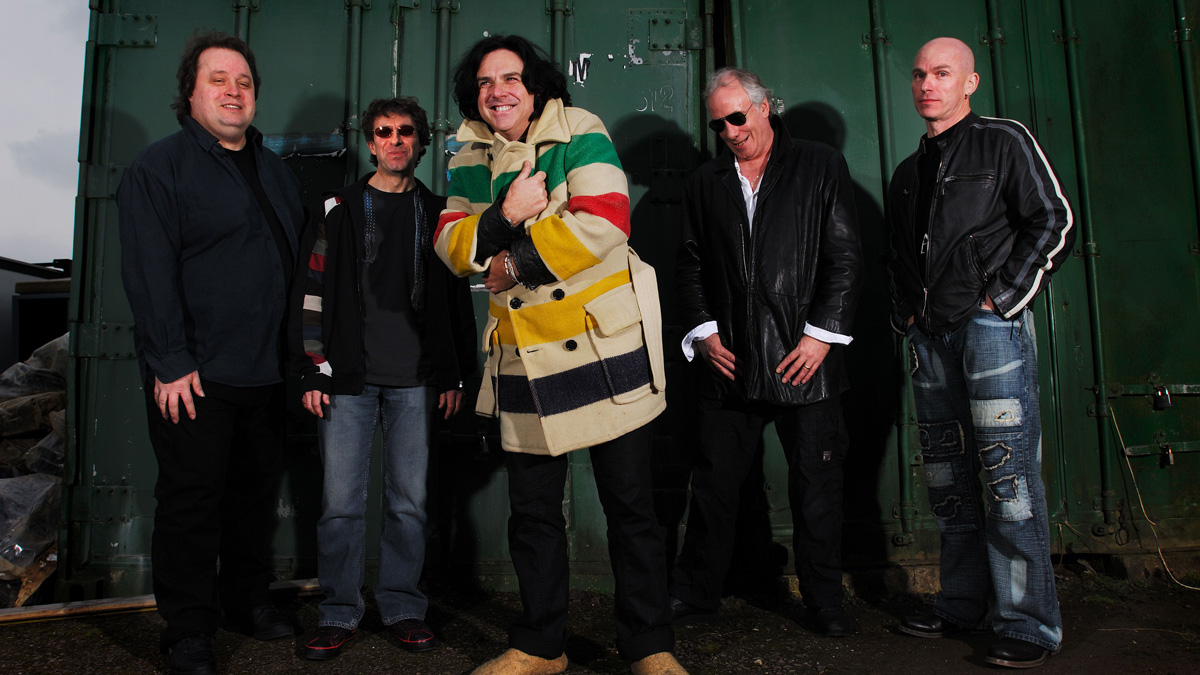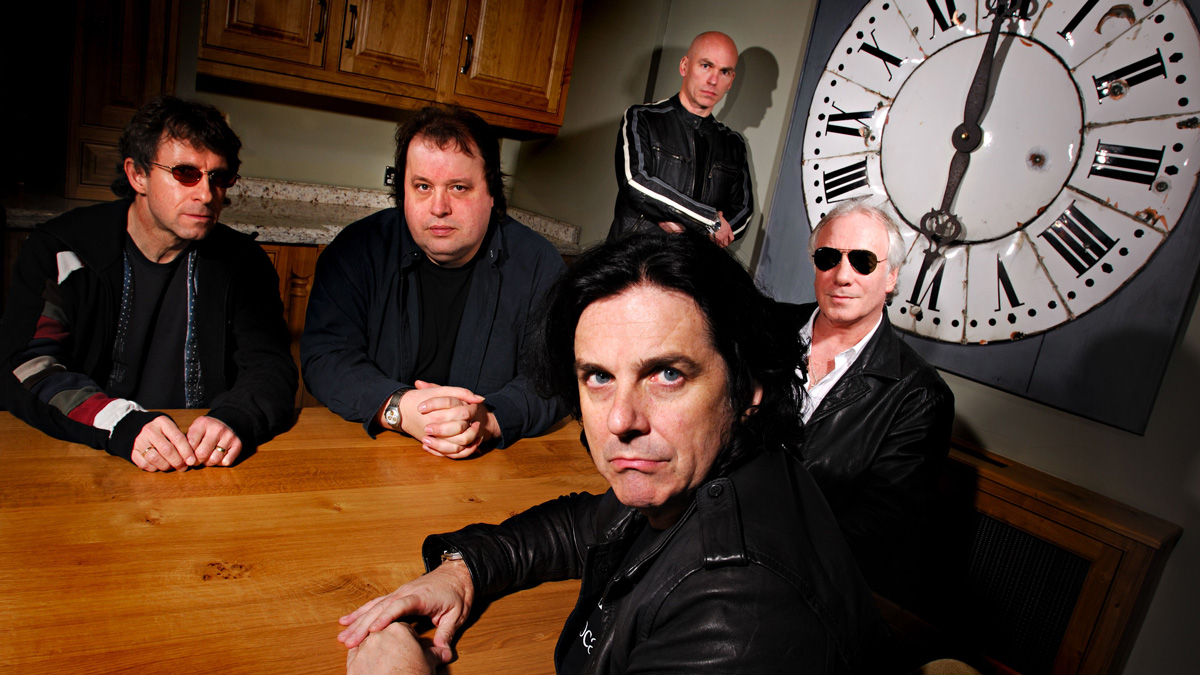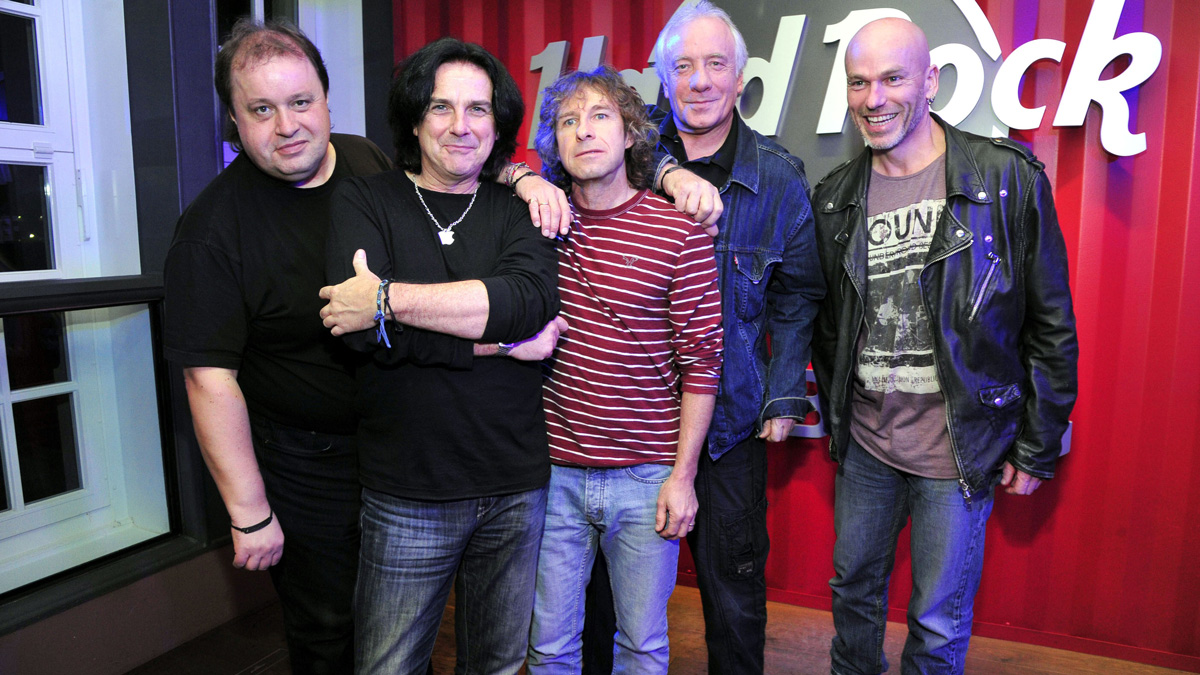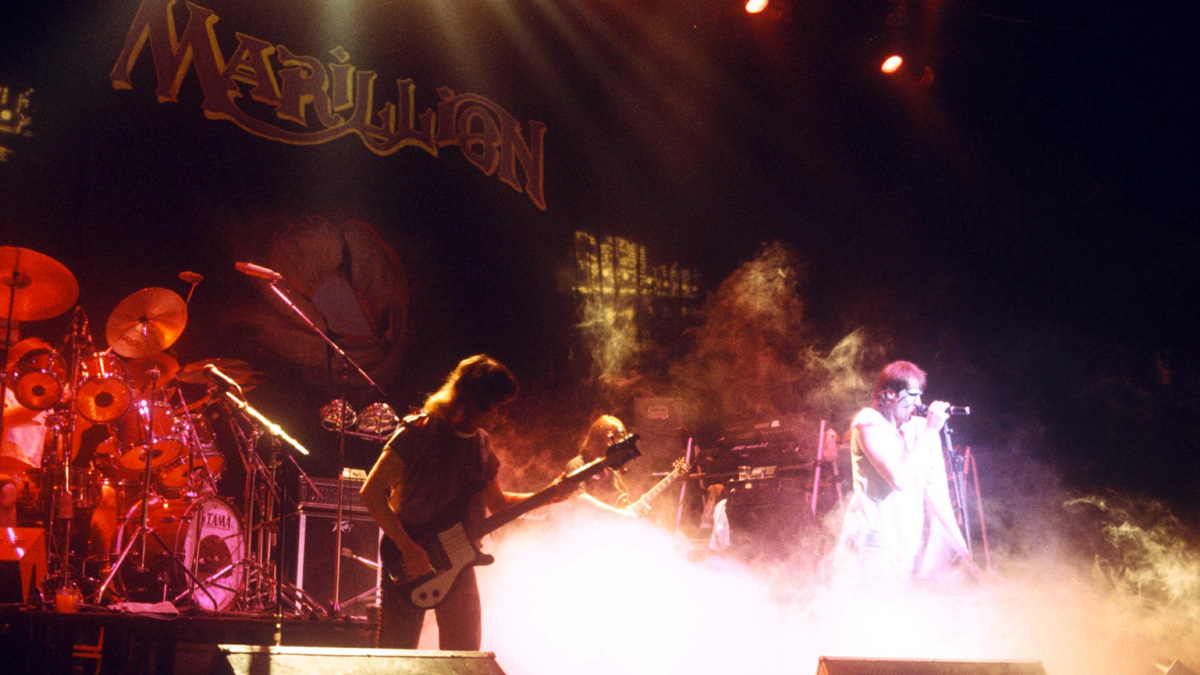Marillion's Ian Mosley: my top 5 tips for drummers
Plus, fan funding and FEAR

Fan funding and FEAR
“We’ve had almost as much press coverage about the fan funding thing as we have about our music,” laughs Marillion drummer Ian Mosley.
They may be true but it is with good reason. You see, it is absolutely correct that this supposed new fangled way of bands generating cash for albums up front by getting their fans involved was first tried out by proggers Marillion long before the likes of Kickstarter and Pledge Music became worldwide hits.
“It started when the internet was just coming into its own,” Ian explains. We were planning a US tour but we thought there was no way we could do it because it was going to cost us $50 or $60,000. A fan in America said he would raise it, they had a whip round! We didn’t think anything of it but then two weeks later he had raised $50,000.”
From there the band ended up taking a similar path when making new albums, but they had no intention of exploiting their loyal fans.
I don’t think in all my time in Marillion anyone has come in the studio saying, ‘Guys, I’ve got a song!’
“We were going through a grey area with independent record labels as well and we weren’t that happy. The label would put our album out without much promotion because they knew our fanbase would go out and buy it even if the label hid it under a rock. We decided then to do it ourselves.
“We had about 12,000 pre-orders of the first album which gave us more money than any record company would give us. We thought maybe we were taking the piss doing it like that again so we didn’t but then we had people saying they had really enjoyed the crowd funding because we did things like putting their names in the album sleeve. From then it has grown and grown.”
It has grown so much that the band have again utilised crowd funding for new album FEAR (Fuck Everyone And Run). Luckily Marillion fans are a patient bunch, as it is a record born out of three years of jam sessions.
“The way Marillion writes is just to get the five of us in a room jamming,” Ian explains. "Over the last three years that is what we’ve been doing. Usually we can be playing for a week and nothing happens then there a gem will appear all of a sudden.
“Mike Hunter, our producer, records every single thing that we do. It is a long, slow process. It is very organic. I don’t think in all my time in Marillion anyone has come in the studio saying, ‘Guys, I’ve got a song!’
A sure-fire benefit of crowd funding is that the band avoids any record label interface. When Ian takes his Tama kit into the studio he can track in peace and he reckons it all sticks together because of the bond between his band mates.
“What is great about Marillion is that we don’t have outside pressure. We do whatever we want, we always have done even when we were on a major record label. The main thing is that we all still love working together. There is a chemistry when you get the five us in a room playing together. It can take a while to hit some magic while we’re jamming, but it will happen and when it does it makes it all worth while.”
As the band prepares to release FEAR on 23 September, we picked Ian’s brain and got his top five tips for drummers.

Prepare your brain
“Stamina wise Marillion don’t really do fast and furious, maybe in 20-second blasts we might. But stamina isn’t a problem.
“But mentally there is a lot to remember. A lot of stuff these days is to click tracks so we have to plan that because there might be a film to go with it for the live show. Everything needs to be planned methodically. It can be mentally fatiguing.
Everything needs to be planned methodically. It can be mentally fatiguing.
“We’re playing a new track at the minute called The New Kings. It’s 16 minutes long so it’s a bit like, ‘Wow, I’ve got to learn that, 16 minutes of music!’
“Because the songs start as jams there aren’t really any structures. The drum parts will be, on first listen, quite simple but then you start delving into them and you find it’s really weird maybe with a fill half way through a bar. It’s a matter of learning it.”

Talk to other drummers
“A big thing for me is that I always approached other drummers. I was a cheeky kid really.
“I used to approach all of my hero drummers and musicians and I just asked them questions. I would ask them to show me something.
“When I was about 17 I worked in a drum shop and nearly all of my heroes came into that shop. I would say, ‘Pleased to meet you, can you show me something?’ Nine times out of ten they were brilliant and gave me advice. That was really helpful.
“I did that with people like Billy Cobham. I walked past him in a studio corridor one day and I said, ‘Hi Mr Cobham, is there any chance of sitting down with you and playing some four and some eights?’ It was very cheeky but he said yes.
I used to approach all of my hero drummers and musicians and I just asked them questions. I would ask them to show me something.
“It was interesting to see what he would do in four bars and his concept of time. I did that with Buddy Rich as well. I knocked on his dressing room door when I was about 15. I thought I might really be in trouble because he had a reputation but he told me to come on in. I played some paradiddles for him and he told me to keep on doing what I was doing. If he had said, ‘I’d give up, mate,’ then I probably would have.
“You also need to listen to what is happening around you. A lot of drummers that I listen to, even these days, at festivals or while we are touring, they will all doing something that makes you go, ‘What was that? That was great.’
‘Listening is so important in improving yourself as a drummer and as a musician.”

Work on the scales of drumming…but not during a gig
“Some drummers don’t like to practice rudiments and whatnot but for me they are the scales of drumming.
“If you can practice some essential rudiments all that can do is help. But you should not practice while you’re actually doing a gig. You should never think, ‘Oh I’ve been practicing this thing for the last month, I’m going to do it in this song.’
“Don’t do that! When you’re playing a gig you should just play.”

Remember your sense of humour
“You need to keep a very good sense of humour at all times. Especially if you are doing lots of session work and working with different people.
“I used to freelance before Marillion and I did some things where I came out wanting to chop the drum kit up and give up. At the same time I was earning money by playing drums so I tried to keep a good sense of humour.
“If someone asked me what I thought of a session I would always say I really enjoyed it and then I’d go slash my wrists in private!”

Know your gear
“I’ve used the same kit forever. I have two kits, one is in the studio, it’s a maple Tama and then on the road I have exactly the same kit but in black. On this album we’ve experimented with a few drum loops as well, that has worked really well.
“We started putting loops in years ago, usually to start a track and when the real drums joined in the loop would drop out. Now, we have lots of things going on all the time in a song, whether it’s loops, percussion or a riff or something that continues underneath the song. I’ve enjoyed experimenting with the electronics.
If the loop falters then you sound like you’re in a really bad pub band.
“For me, it’s all about getting the right balance. Sometimes you can set up a loop and it sets up a groove straight away that is great to play along to. It’s safety in numbers. Of course, if the loop falters then you sound like you’re in a really bad pub band.
“With the kit, often when we’re touring in places like South America I will hire gear and it’s a different kit every gig. If you get the specs right and you use the drum heads that you like then you will be able to get a good sound out of most kits.
“My studio kit is a big kit but it is very versatile. I always use Remo Clear Ambassador on top and Diplomats on the bottom. I’ve stuck with that forever. I’ve had the same cymbal set up as well.”
Rich is a teacher, one time Rhythm staff writer and experienced freelance journalist who has interviewed countless revered musicians, engineers, producers and stars for the our world-leading music making portfolio, including such titles as Rhythm, Total Guitar, Guitarist, Guitar World, and MusicRadar. His victims include such luminaries as Ice T, Mark Guilani and Jamie Oliver (the drumming one).
